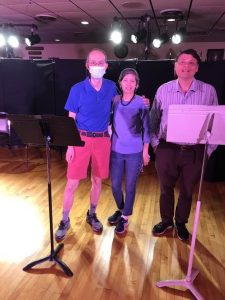Getting Us Through the Night
Getting Us Through the Night
Review of Cracks of Light
Nabokov once said, “Our existence is but a brief crack of light between two eternities of darkness.” Under Covid, we have all seen a lot of darkness. The idea is to make the most of the crack. And poet, Sterling Warner does that in his chapbook, “Cracks of Light…Pandemic Poetry & Fiction 2019 – 2022.
That sense of the finality of death came all-too-close in that first year of the Coronavirus. Americans like to shun, delay, or ignore the Grim Reaper, but we could not at a time of mass graves, refrigerated trucks stacking our relatives, and the isolation of city streets.
Sterling deals with this sense of time out of whack with poems such as “Elliott Bay Changelings,” in which he overlaps pre-Covid time with virus time in one circuit of a ferry. He writes: “Commuters breathe on plate glass windows, leave sheets of human fog across transparent surfaces…engrave initials on water vapor.” This is a kind of through line for the book, in which we all were thrown out of our comfort zones and forced to march to the ticking of one horrible grandfather clock, synchronizing us, like it or not, to its moribund schedule. We were out of time. The act of writing your initials in water vapor (laced with SARS cells?) is a defiant act, a poet’s act.
Time is not all that’s out of joint in this collection. The structure of things seems to give way to this invader. In “Trifecta Shroud” Sterling compares future plans to an “urn collapsing from within” – maybe a nod to Yeats’ “the center cannot hold.” Humans themselves seem to have changed too, as we see in “Peeling Grapes,” wherein a barfly, out on the prowl, is compared to a firefly. In “Major League Adjustment” baseball fans are mere cardboard cutouts.
Barriers of Plexiglas, “glass-bottomed boats, lucent zeppelins, and revolving window restaurants” are membranes allowing protagonists to observe the strange new human attributes, yet not partake. Has Corona changed humanity, or have we released a metaphoric virus of pandemic denial and defiance from political villains and “cure connoisseurs”?
Even the shape of three poems reflects the schism. The eponymous “Cracks of Light” has a crack separating its lines. In “Wondering” the middle lines are attenuated – maybe to suggest the spike proteins of SARS-COV-2?
If you think this is all a lamentation on futility, take hope; the last piece, “Resurgence,” comes from the later phase of our tragedy, when frozen ocean voyage photos can be put down, as we join the buzz of real backyard barbeques.
Stuart Kurtz

